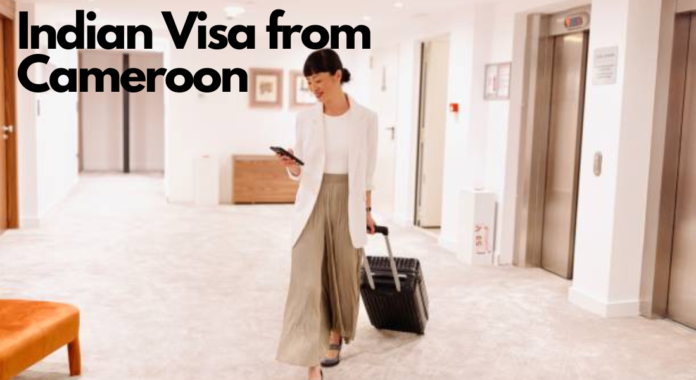Understanding the Types of Indian Visas Available
When considering a visit to India from Cameroon, it is crucial to understand the different types of visas accessible to travelers. Each visa category serves specific purposes and has unique requirements. The most common types of Indian visas include tourist visas, business visas, student visas, and medical visas.
A tourist visa is intended for individuals who plan to explore India for leisure. This visa typically allows for a stay of up to six months, enabling visitors to experience India’s diverse culture and attractions. Applicants are generally required to provide proof of travel arrangements, accommodations, and financial stability during their stay.
For those intending to conduct business in India, a business visa is the appropriate choice. This visa facilitates activities such as attending meetings, conferences, or negotiations. The duration of stay for a business visa can vary, ranging generally from six months to one year, depending on the nature of business activities. Applicants must submit documents that confirm their business engagements, such as invitation letters from Indian companies.
Students planning to pursue education in India must apply for a student visa. This visa permits a longer stay, typically valid for the duration of the course or program being undertaken, with the possibility for extension. Applicants need to provide acceptance letters from recognized Indian educational institutions and proof of financial resources to cover living expenses.
Lastly, a medical visa is designated for individuals seeking medical treatment in India. This visa generally allows patients and their attendants to stay for up to one year, depending on the medical treatment required. Necessary documentation includes medical reports from recognized hospitals and letters from doctors recommending treatment in India.
The Application Process for Indian Visas
Applying for an Indian Visa from Cameroon involves a systematic approach that ensures all requirements are met. The first step is to fill out the visa application form, which can be accessed online through the official Indian visa portal. It is crucial to select the appropriate type of visa according to the purpose of travel, such as tourist, business, or student visa. Careful attention should be paid to filling out personal information accurately, as discrepancies can lead to delays or rejections.
Once the application form is completed, the next step is to gather the necessary documentation. Essential documents for an Indian visa typically include a valid passport with at least six months of validity beyond the intended stay, along with a minimum of two blank pages. Additionally, applicants must provide recent passport-sized photographs that adhere to the specifications set out by the Indian authorities. Proof of accommodation in India, such as hotel bookings or an invitation letter from a host, is also required.
After compiling the required documents, applicants may submit their application either online or in person at the designated Indian visa application centers in Cameroon. If opting for online submission, ensure that all documents are scanned clearly and uploaded in the correct format. When submitting in person, it is advisable to double-check that all documents are present and organized to avoid common mistakes like missing signatures or incomplete information. Following these guidelines can significantly enhance the probability of a successful visa application, paving the way for a smooth travel experience.
Visa Fees and Processing Times
Obtaining an Indian visa from Cameroon involves understanding the associated fees, which vary depending on the type of visa applied for. The Indian government categorizes visas into several types, including tourist, business, student, and employment visas. Each visa type comes with a specific fee structure. For instance, tourist visas are generally less expensive than business or employment visas, which are deemed more complex due to the additional documentation required. It is essential for applicants to consult the official Indian visa application portal for the most current fee schedule, as these may change periodically.
In addition to the basic visa fees, applicants should be aware of potential extra costs. These can include service fees if applications are submitted through an external processing agency, document translation fees, and any expenses related to obtaining the necessary supporting documents, such as financial statements or invitation letters.
Processing times for Indian visas can also differ significantly. While tourist visas may be processed within a week, business or employment visas might take several weeks due to additional vetting and required documentation. Generally, it’s advised to apply for the vi-sa at least 4-6 weeks before the intended travel date. To expedite the process, applicants can consider opting for premium processing services if available, or ensure that all required documents are meticulously prepared and submitted. This preparedness can often mitigate delays, allowing for a smoother application experience.
FAQs and Common Challenges Faced by Applicants
Obtaining an Indian Visa from Colombia can manifest various challenges and raise numerous questions among applicants. Among the most prevalent concerns are the reasons behind visa rejections. Many applicants may experience anxiety regarding their eligibility and the completeness of their documentation.
Another common inquiry pertains to the vi-sa application interview process. While many applicants may not be required to interview for most visa types, the need for an interview can emerge based on the specific case or the discretion of the embassy staff. Potential applicants should thoroughly prepare for this possibility by familiarizing themselves with potential questions and ensuring clarity regarding their purpose of travel and itinerary in India.
Documentation issues can also hinder the application process. Applicants must adhere to strict guidelines regarding the authenticity and accuracy of their documents. Submitting incorrect or altered information may not only lead to delays but could also result in a permanent ban from securing future visas. It is advisable for applicants to double-check all entries and provide honest, verifiable information.
They often possess resources and personnel to assist applicants in navigating the vi-sa acquisition process efficiently. Additionally, consulting experienced travel agents or visa service providers can offer valuable insights and support aimed at mitigating potential challenges.




